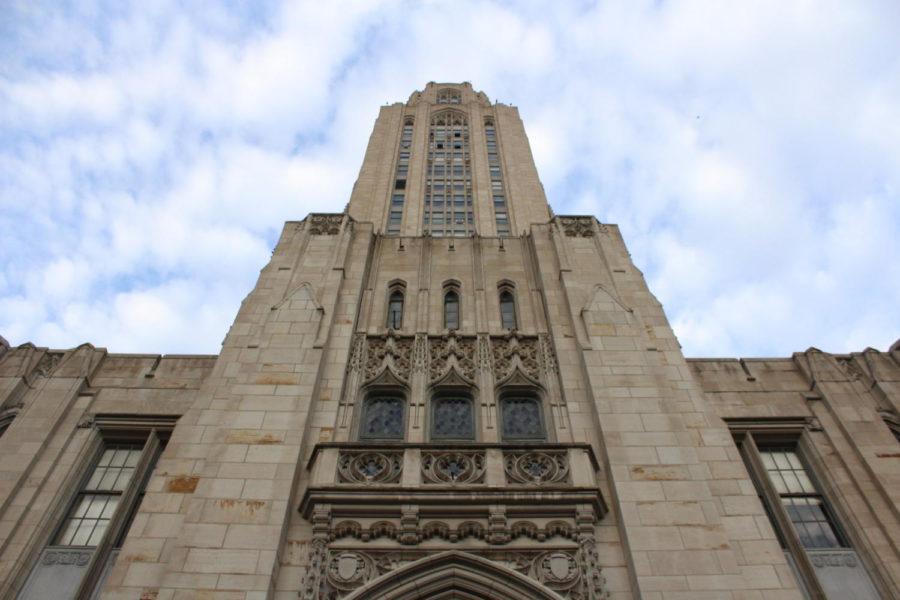Pitt submits document opposing proposed DHS visa rules
Sarah Cutshall | Visual Editor
Provost Ann Cudd and seven other provosts at Pennsylvania universities signed a document last Tuesday saying the new visa rules proposed by the Department of Homeland Security rules are “unnecessary” and “harmful.”
November 11, 2020
Pitt submitted comments on Oct. 27 opposing the Trump administration’s proposed visa changes released in late September.
The submitted document, signed by Provost Ann Cudd and seven other provosts at Pennsylvania universities, said the rules are “unnecessary” and “harmful” and called on the Department of Homeland Security to immediately withdraw them.
The 30-day public comment process allows individuals or organizations to submit feedback on a variety of proposed rule changes. The comments on the proposed visa changes gathered more than 32,000 public comments.
“We ask that DHS withdraw this rule, and instead pursue policies to make U.S. colleges and universities more attractive destinations for the best and the brightest from around the world, which is truly one important tactic for maintaining U.S. technological leadership and developing the innovations that will grow the nation’s economy in years to come,” the document said.
The new rules published on Sept. 25 by the Trump administration — which would affect many of Pitt’s more than 3,100 international students — seek to create fixed terms of up to four years for student visas, as well as new applications for international students to extend their stay in the United States. For students from 59 countries, the new rule would limit student visas to just two years.
Currently, student visas are good for “duration of status,” meaning students can stay in the United States indefinitely if they remain enrolled in school and abide by the rules relevant to their immigration status.
The universities said the fixed terms — which are shorter than many degree programs — would threaten their “competitive strength,” further accelerate the decline in international enrollment and jeopardize research activity. The document also noted that international students contribute $2 billion a year to Pennsylvania’s economy and support 28,000 jobs.
Delo Blough, director of Pitt’s Office of International Services, said in October that the Trump administration’s assertion that the new rule is necessary to increase oversight of international students and combat visa overstays isn’t true. She said the University is required to report to the government every semester where international students live and if they are still a full-time student.
“To say that they need to do this to have more oversight is 100% bullsh—. Complete bullsh—,” Blough said. “The government has all kinds of oversight into this group of visitors that they don’t have with any other visitor in the U.S. No group of visitors has this much oversight in the U.S.”
Ghalia Malki, an international student from Saudi Arabia, criticized Pitt’s response to these latest proposed immigration changes. Malki, a junior biological sciences major, said she felt the Office of International Services’ messaging to international students was confusing and didn’t clearly explain the proposed rules.
Malki said she is “glad” Pitt took action in the comments process and is hopeful for the future.
“I’m glad Pitt put [a comment] out there and took a stand,” Malki said. “I hope that the situation works out for the best.”
University spokesperson Kevin Zwick did not directly respond to questions on whether Pitt would take any actions to oppose the rules beyond the public comment it submitted.
“Pitt will continue to speak out against reckless policies that are harmful to our students,” Zwick said.
Ariel Armony, vice provost for global affairs and director of the University Center for International Studies, also submitted a comment alongside Sheila Velez Martinez, a professor in Pitt’s School of Law, urging DHS to withdraw the proposed rules. They said the rules should be withdrawn because they’re harmful to STEM research, make U.S. higher education less competitive internationally and current oversight systems already adequately monitor students, among other reasons.
“Institutions like the University of Pittsburgh have relied on the current regulatory structure to develop and expand world class programs that have positively impacted the life of citizens across hundreds of nations and have enriched the learning experience at the University,” the document said.








